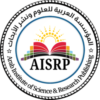Economic factors affecting rice imports in Kingdom of Saudi Arabia during the period
from (1989-2018)
Mrs. Buthaynah Hashim Al-Hassan*1, Co-Prof. Samar S. Mohamed Abdalla1 2, Co-Prof. Raga M. Elzaki1 3
1 College of Agricultural and Food Sciences | King Faisal University | KSA
2 Agricultural Economics and Policy Research Centre (AEPRC) | Agricultural Research Corporation (ARC) | Sudan
3 Faculty of Animal Production | University of Gezira | Sudan
Abstract: The Kingdom of Saudi Arabia imports rice due to limited local production as a result of scarcity of natural resources. Rice is considered the main food for both citizens and residents. Therefore, Kingdom depends on importing it from other countries such as India and Pakistan. This research aims to study the determinants of rice imports demand function in Saudi Arabia. The study has relied on secondary data collected from several published sources (Food and Agricultural Organization (FAO), World Bank and Saudi Central Bank). Autoregressive Distributed Lag (ARDL) model was used to determine the economic factors affecting rice imports.
The results reveal that there is a long-term equilibrium relationship between the imports function variables. As well, there is a statistically significant relationship between rice imports and independent variables such as the Gross Domestic Production (GDP), the price of imports and the rate of inflation in the long term. Moreover, there is a statistically significant relationship between imported quantities of rice and both GDP, and the inflation rate in the short term.
The results show that the error correction parameter is significant, which indicates the possibility of correcting the error in the short term to return to the long-term equilibrium. The study recommends enhancing the monetary policies that would maintain the inflation rate at reasonable levels. Furthermore, the impact of GDP on rice imports must also be taken into consideration when establishing the trade policies due to its importance and impact on both the long and short terms.
Keywords: rice imports, gross domestic product, inflation rate, joint integration, food security.
العوامل الاقتصادية المؤثرة على واردات الأرز في المملكة العربية السعودية خلال الفترة
من (1989-2018)
أ. بثينه هاشم الحسن*1, الأستاذ المشارك / سمر شمس الدين محمد عبد الله1 2, الأستاذ المشارك / رجاء محمد الزاكي1 3
1 كلية العلوم الزراعية والأغذية | جامعة الملك فيصل | المملكة العربية السعودية
2 مركز البحوث الاقتصادية والسياسات الزراعية (AEPRC) | هيئة البحوث الزراعية (ARC) | السودان
3 كلية الإنتاج الحيواني | جامعة الجزيرة | السودان
المستخلص: تستورد المملكة العربية السعودية سلعة الأرز نسبة لمحدودية إنتاجها محليًا بسبب ندرة الموارد الطبيعية. يعتبر الأرز الغذاء الرئيس للمواطنين والمقيمين، لذا تعتمد المملكة على استيراده من الدول الاخرى كالهند وباكستان. يهدف هذا البحث إلى دراسة محددات دالة الطلب على واردات الأرز في المملكة العربية السعودية.
اعتمدت الدراسة على البيانات الثانوية التي تم جمعها من عدة مصادر منشورة (منظمة الأغذية والزراعة، البنك الدولي والبنك المركزي السعودي)، تم استخدام نموذج الانحدار الذاتي ذو الفجوات الزمنية الموزعة (ARDL) لتحديد العوامل الإقتصادية المؤثرة على واردات سلعة الأرز. كشفت النتائج وجود علاقة توازنيه طويلة الأجل بين متغيرات دالة الواردات. كما توجد علاقة ذات دلالة إحصائية بين واردات الأرز والمتغيرات المستقلة مثل الناتج المحلي الإجمالي،
سعر الواردات ومعدل التضخم في الأجل الطويل. اضافة إلى ذلك، توجد علاقة ذات دلالة إحصائية بين الكميات المستوردة من الأرز والناتج المحلي الإجمالي ومعدل التضخم في الأجل القصير. اوضحت النتائج ان معلمة تصحيح الخطأ معنوية مما يدل على إمكانية تصحيح الخطأ في الأجل القصير للعودة للتوازن طويل الأجل. توصي الدراسة بتعزيز عمل السياسات النقدية التي من شأنها المحافظة على معدل التضخم في المستويات المعقولة لتأثيره على واردات الأرز في المدى القصير والطويل.
بالإضافة إلى ذلك، يجب الأخذ في الاعتبار تأثير الناتج المحلي الإجمالي على واردات الأرز عند وضع السياسات التجارية نسبة لأهميته وتأثيره في الأجلين الطويل والقصير.
الكلمات المفتاحية: واردات الأرز، الناتج المحلي الإجمالي، معدل التضخم، منهجية التكامل المشترك، الأمن الغذائي
